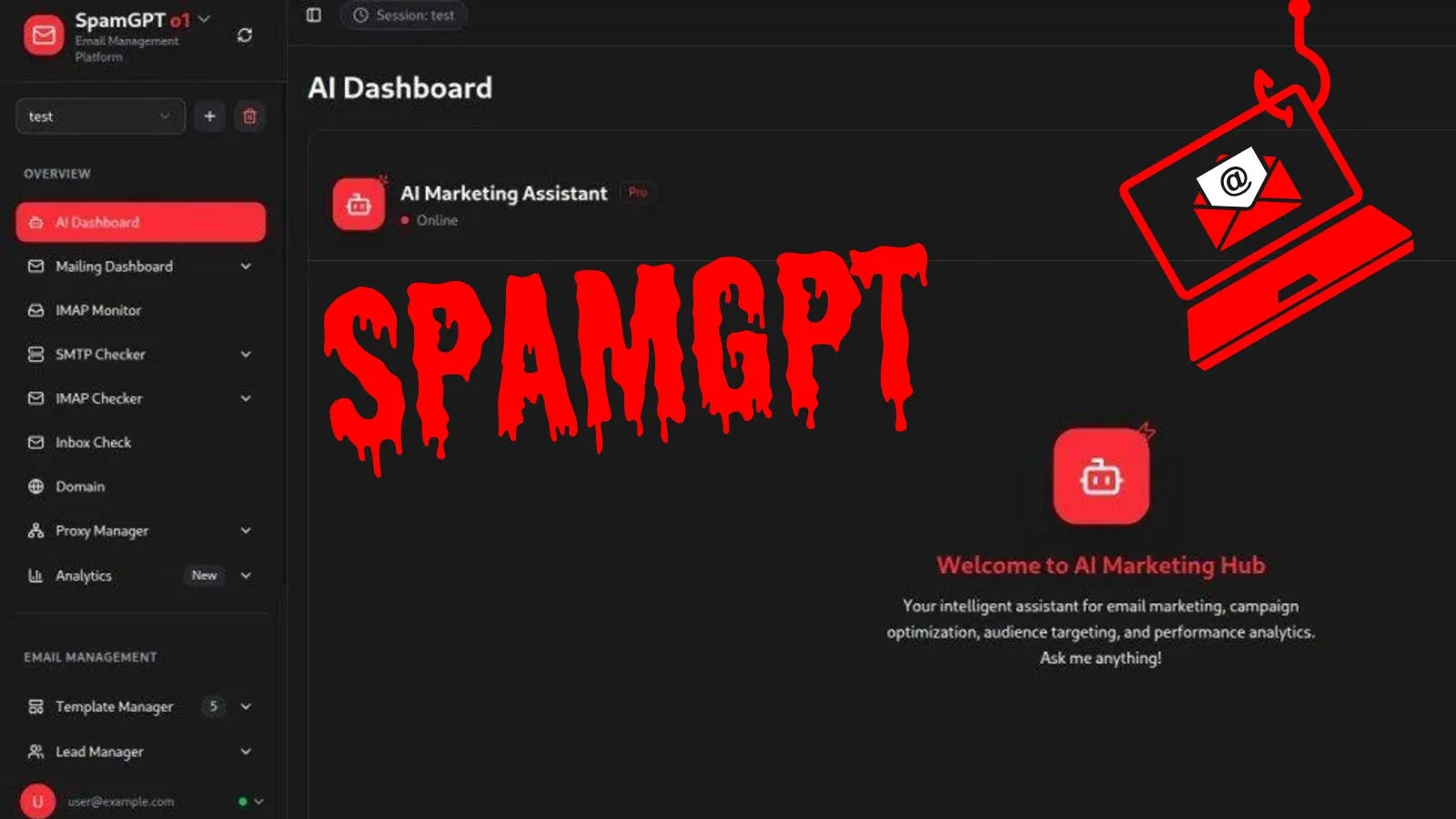A new and sophisticated cybercrime tool dubbed SpamGPT is being marketed on the dark web, significantly lowering the barrier to entry for conducting large-scale, highly effective phishing campaigns. This "spam-as-a-service" platform combines artificial intelligence with the functionality of professional email marketing software, automating nearly every aspect of fraudulent operations.
Professional-Grade Toolkit for Cybercrime
SpamGPT features a user-friendly, dashboard-driven interface that mirrors legitimate marketing platforms, complete with tools for:
- Configuring SMTP/IMAP servers for sending emails.
- Testing email deliverability to ensure messages bypass spam filters.
- Analyzing campaign results with real-time monitoring dashboards.
This professionalization allows criminals to manage campaigns with an efficiency and scale previously available only to well-resourced threat actors or legitimate enterprises.
AI-Powered Persuasion and Scale
At the core of the platform is an integrated AI assistant, KaliGPT, which is designed to:
- Generate persuasive and convincing phishing email content.
- Craft compelling subject lines designed to maximize open rates.
- Provide advice on targeting specific victim demographics.
This eliminates the need for attackers to possess strong writing or social engineering skills, as the AI generates high-quality, deceptive content on demand. The service also boasts an ability to guarantee inbox delivery to major email providers like Gmail and Outlook by abusing trusted cloud infrastructure from Amazon AWS and SendGrid to mask its malicious traffic.
Advanced Evasion and Infrastructure Automation
A key selling point is its focus on evading detection. For a substantial fee (e.g., $5,000), the toolkit includes:
- "SMTP Cracking Mastery" Training: Teaches users how to compromise or create an unlimited supply of high-quality SMTP servers to send spam.
- Advanced Spoofing Techniques: Allows attackers to customize email headers and perfectly impersonate trusted brands, often bypassing basic email authentication checks like SPF and DKIM.
- Automated Testing: Includes utilities to bulk-verify SMTP credentials and perform inbox placement tests, enabling attackers to fine-tune their campaigns for maximum success before launching them.
The New Frontier of Phishing
SpamGPT represents a significant evolution in the cybercrime landscape. By packaging advanced capabilities into an easy-to-use service, it enables even low-skilled actors to launch sophisticated, large-volume phishing attacks.
Defensive Recommendations
To counter this growing threat, organizations must adopt a multi-layered defense strategy:
- Enforce Strict Email Authentication: Implement and rigorously enforce DMARC, SPF, and DKIM protocols to make domain spoofing more difficult.
- Deploy AI-Powered Security Solutions: Utilize advanced email security tools that can analyze linguistic patterns and technical signatures to detect AI-generated phishing content.
- Adopt a Proactive Posture: As attackers leverage AI and automation, defenders must combine advanced technology with continuous threat intelligence to anticipate and mitigate these evolving tactics.
The rise of tools like SpamGPT signals a shift towards the industrialisation of cybercrime, necessitating an equally sophisticated and automated response from the cybersecurity community.

